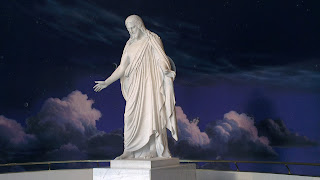A note from Mom: Even though Elder Penman is not currently serving in Scotland, it seemed appropriate to post information about St. Andrew's Day, which is a national holiday in Scotland.
St. Andrew's Day is the feast day of Saint Andrew. It is celebrated on the 30th of November.
St. Andrew's Day is the feast day of Saint Andrew. It is celebrated on the 30th of November.
Saint Andrew is the patron saint of Cyprus, Scotland, Greece, Romania, Russia,
Ukraine, Bulgaria, the Ecumenical Patriarchate of Constantinople, San Andres Island, Colombia and Saint Andrew, Barbados.
Ukraine, Bulgaria, the Ecumenical Patriarchate of Constantinople, San Andres Island, Colombia and Saint Andrew, Barbados.

St. Andrew's Day (Scots: Saunt Andra's Day, Scottish Gaelic: Là Naomh Anndrais) is Scotland's official national day. In 2006, the Scottish Parliament designated St Andrew's Day as an official bank holiday. It is also a national holiday in Romania (since 2015).

In Scotland, and many countries with Scottish connections, St Andrew's Day is marked with a celebration of Scottish culture with traditional Scottish food, music and dance. In Scotland the day is also seen as the start of a season of Scottish winter festivals encompassing St Andrew's Day, Hogmanay and Burns Night. In Edinburgh, there is a week of celebrations, concentrating on musical entertainment and traditional ceilidh dancing. A ceilidh is a social event with couples dancing in circles or sets (groups of six or eight people). In Glasgow city centre, a large shindig, or party, with traditional music and a ceilidh are held. In Dumfries, songs are performed in the Burn's night tradition.
https://en.wikipedia.org/wiki/St._Andrew%27s_Day

























